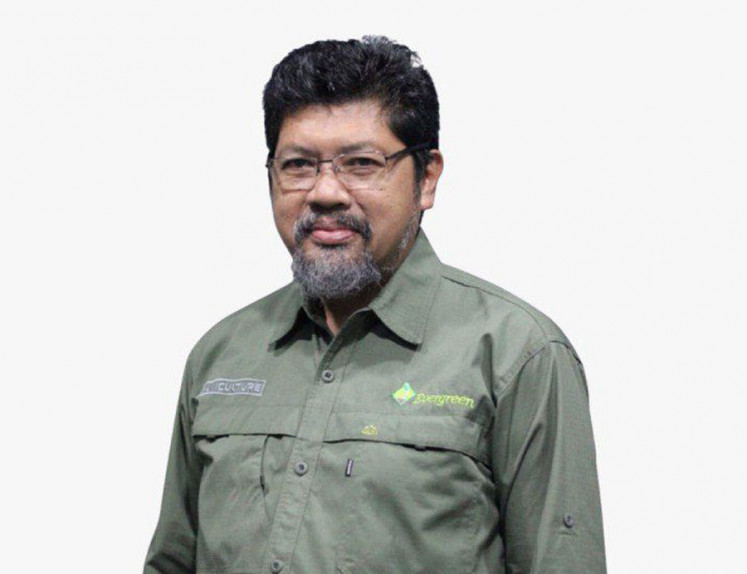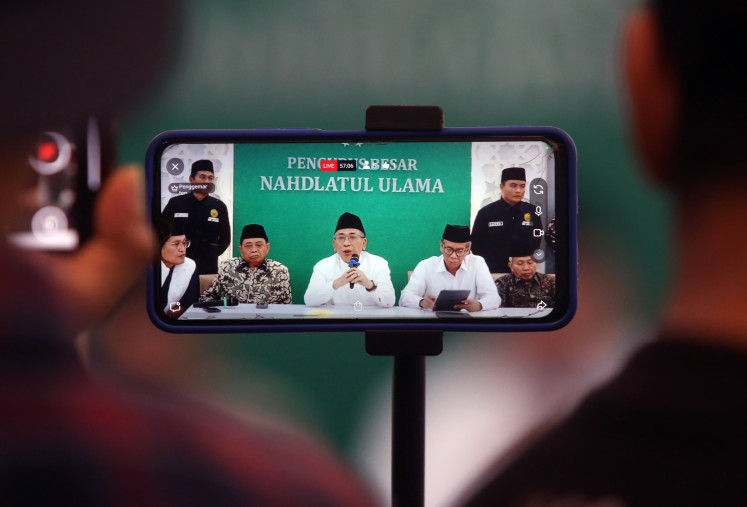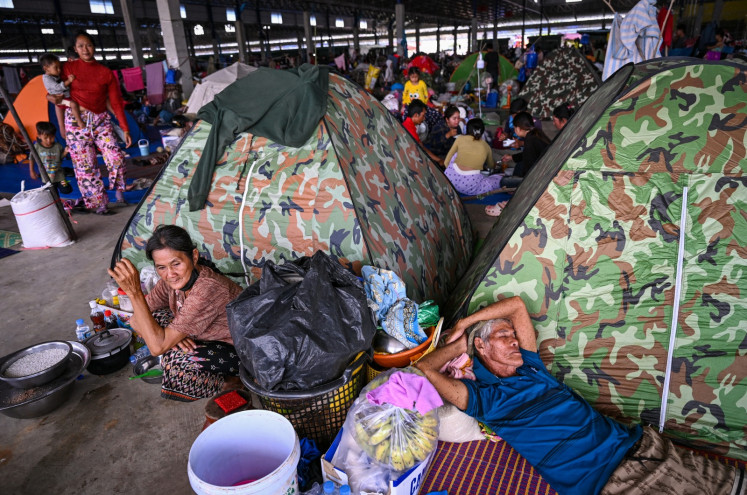Popular Reads
Top Results
Can't find what you're looking for?
View all search resultsPopular Reads
Top Results
Can't find what you're looking for?
View all search resultsPostponing elections?
As the government remains unable to keep virus transmission under control, as evinced by the steep rise in confirmed cases, it is possible that regions that elect their leaders will turn into additional red zones – areas at high risk of virus transmission.
Change text size
Gift Premium Articles
to Anyone
 The right to vote and health: During a simulation of the Dec. 3 regional elections held at the General Elections Commission compound in Central Jakarta on July 22, an official presents the ballots. Health protocol will be enforced during the elections to minimize transmission of COVID-19. (JP/Dhoni Setiawan)
The right to vote and health: During a simulation of the Dec. 3 regional elections held at the General Elections Commission compound in Central Jakarta on July 22, an official presents the ballots. Health protocol will be enforced during the elections to minimize transmission of COVID-19. (JP/Dhoni Setiawan)
B
latant violations of health protocols have marked the early stages of the simultaneous regional elections set for Dec. 9. Their potential to exacerbate COVID-19 transmission in the country should not be underestimated, especially now that at least 45 of the 270 regions that will host elections have been designated highrisk areas.
In a number of cities and regencies, crowds of supporters accompanied candidates to register with local General Elections Commission (KPU) offices from Sept. 4 to Sept. 6. According to a KPU regulation, all activities related to the elections must follow health protocols, which include mask wearing and physical distancing.
The problem with the regulation is that the KPU cannot enforce the COVID-19 clauses for regional candidates. That authority lies with the Elections Supervision Agency (Bawaslu), which has recorded more than 240 election health protocol violations but has punished no one.
The KPU regulation includes a list of “dos and don’ts” that candidates and their supporters must comply with to minimize COVID-19 transmission. All candidates, for example, were required to disinfectant the documents they submitted to regional KPU offices and to avoid mass mobilizations, including large entourages, during registration. Candidates were to submit the documents themselves, with companions limited to representatives of their nominating political parties, and they had to show negative COVID-19 test results to enter to the regional KPU offices.
Electoral campaigns must also avoid face-to-face encounters between candidates and the public. The KPU allows each candidate pair to hold only one in-person public gathering, with a maximum of 50 attendees.
Non-incumbent candidates and their nominating parties have complained about the restrictions, which they say will lower their chances of winning. They believe the rules – although they seek to promote health and safety – do not provide a level playing field for contenders. Given that incumbents, with all their privileges, will take advantage of the rules of the game, many have asked the KPU to postpone the regional elections.
In fact, the elections have already been delayed once from their original date of Sept. 23 because of the COVID-19 pandemic.
As the government remains unable to keep virus transmission under control, as evinced by the steep rise in confirmed cases, it is possible that regions that elect their leaders will turn into additional red zones – areas at high risk of virus transmission.
Unless health protocols are strictly enforced, more violations may occur before voting day. That the authorities have failed to prevent breaches from happening recently shows their unpreparedness to deal with this unprecedented situation.
Poll organizers and the government are facing still more challenges to ensure people are able to exercise their democratic right without impinging upon their right to health. Unsurprisingly, poll watchdogs have suggested that the remaining election stages, including the campaign period, be delayed, citing concerns about the further spread of the virus, which has now infected more than 218,000 people across the country.
As the stakes are high, the KPU should not rule out the option of postponing this year’s regional elections.









